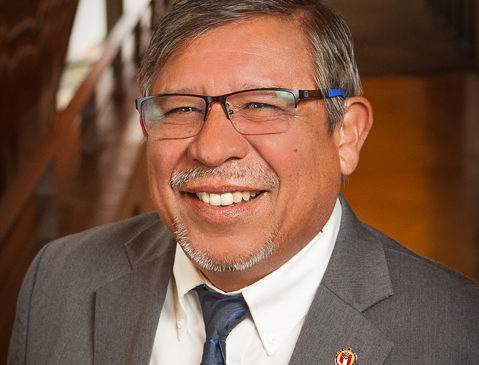Pio Renteria: Seven years in office and 71 years in District 3
Tuesday, December 21, 2021 by
Kali Bramble City Council Member Pio Renteria recalls the time when he was able to purchase his East Austin home for just over $20,000. Now he’s received an offer to sell it for nearly a million.
As a lifelong resident of East Austin, Renteria has experienced the whirlwind of change undergone by District 3 firsthand. Though it has been an uphill battle, Renteria says he continues to work toward alleviating Austin’s cost-of-living crisis and making affordable housing more accessible to his constituents.
Last year saw the expansion of the Chalmers Courts housing developments, which Renteria expects to be completed by next year. The complex, originally built as affordable housing during the Great Depression, has been completely renovated, and has tripled in size since the beginning of the project in 2018. The new Pathways at Chalmers Court carries forward its long legacy, working with the Housing Authority of the City of Austin to provide homes to those living at under 60 percent of the area family median income.
Renteria is also proud of the development at Plaza Saltillo, which continues to bring people to live, eat and shop along East Austin’s main public transportation corridor. It is a major transformation for the parcel of land spanning Third and Fourth streets just east of Interstate 35, which is owned by the Capital Metropolitan Transportation Authority and was once an abandoned rail yard. A long history of investment and displacement accelerated in 2017 with a deal between the city, Capital Metro and Endeavor Real Estate to rent out the space for mixed-use development.
Renteria says the involvement of other stakeholders has capped the affordable unit requirement at 18 percent (Mueller, which is owned by the city, is Renteria’s gold standard at 25 percent). Under these conditions, high-rise apartment complexes and major shopping destinations such as Whole Foods and Target have shot up in the surrounding area.
Renteria also looks forward to the changes to come from Project Connect, which kicked into gear this past November with the finalization of its joint powers agreement. After many years of trudging forward, Renteria says new rail lines that will better serve the needs of his constituents are finally on the horizon.
“I’ve been a part of our research into rail for almost 30 years now,” he said. “I was on the original trip our city funded to go observe rail systems in other cities: Houston; Ft. Lauderdale; Washington, D.C.; Toronto. I saw so many amazing developments to come out of these systems in these cities, so when I got back I really started pushing for them here in Austin. That’s how we passed the Red Line – my constituents in East Austin were the ones coming out to show support.”
Though the rail lines are slated to take several years of construction, in the meantime, Renteria is working to make his main thoroughfares safer for the pedestrians who use the existing infrastructure.
“I’ve had a couple of employees lose very close friends just walking down Riverside, through speeding cars jumping curbs,” he said. In response to these fatalities, Renteria’s office has lowered the speed limit on Riverside and closed one lane to outside traffic for bus services.
Renteria is also proud of Council’s efforts to rehouse the city’s homeless population through Project HEAL, an effort that began before the special election in May but became more urgent with the passage of the camping ban. The HEAL team relocated dozens of people from the now-cleared Terrazas Library encampment into temporary shelters at newly repurposed motels. Next on the HEAL team’s list of priorities will be developing a path toward permanent rehousing for those who were relocated.
With one year left in his second four-year term on Council, Renteria says the conversations he’s been having the most often revolve around the next generation of leadership in his district. “I have to start thinking about who I’ll endorse! It’s an exciting opportunity for growth.”
The Austin Monitor’s work is made possible by donations from the community. Though our reporting covers donors from time to time, we are careful to keep business and editorial efforts separate while maintaining transparency. A complete list of donors is available here, and our code of ethics is explained here.
You're a community leader
And we’re honored you look to us for serious, in-depth news. You know a strong community needs local and dedicated watchdog reporting. We’re here for you and that won’t change. Now will you take the powerful next step and support our nonprofit news organization?






